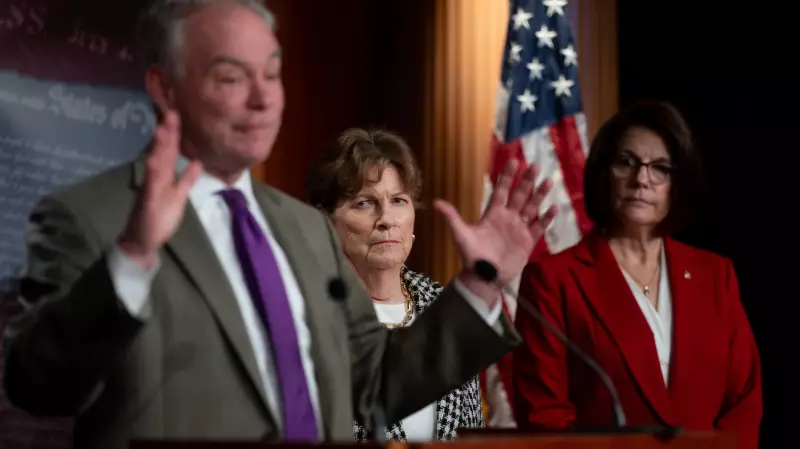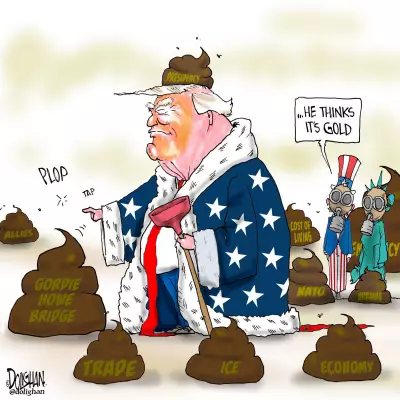
Bipartisan Agreement Ends Historic Government Shutdown
The United States Senate initiated proceedings to conclude the nation's longest-ever government shutdown on Sunday, November 9, 2025, following a breakthrough agreement between eight Democratic senators and Republican leadership. The compromise notably excluded Democrats' primary demand of extending enhanced healthcare subsidies under the Affordable Care Act, marking a significant concession from the minority party.
The Senators Behind the Deal
The Democratic senators who voted to reopen the government included Dick Durbin of Illinois, Jeanne Shaheen of New Hampshire, Maggie Hassan of New Hampshire, Jackie Rosen of Nevada, Catherine Cortez Masto of Nevada, John Fetterman of Pennsylvania, and Tim Kaine of Virginia. They were joined by Independent Senator Angus King of Maine, who consistently aligns with Democratic leadership. Three of these legislators—Fetterman, Cortez Masto, and King—had previously sided with Republicans to initiate floor debate on funding legislation since the shutdown began.
This group defied the majority of their Democratic colleagues and party supporters who viewed the shutdown as a necessary strategy to counter what they perceived as President Donald Trump's authoritarian tendencies and prevent Republican efforts to increase healthcare expenses for millions of Americans. The shutdown had appeared to benefit Democrats politically, with polls indicating Republicans and Trump bore most public blame, and the party achieving significant victories in off-year elections held November 4.
Political Consequences and Justifications
The decision to compromise now risks dampening party momentum and alienating the Democratic base, which has expressed frustration over Trump's governance style and the party's perceived inability to effectively oppose him.
Each of the eight senators emphasized the severe impact the shutdown had on government employees and the general public while highlighting Republican commitments to hold a vote restoring Affordable Care Act subsidies as a major achievement.
Senator Jeanne Shaheen told reporters on Sunday, "This agreement gives Democrats control of the Senate floor—at a time when Republicans control every level of power—on one of our top legislative priorities."
Senator Angus King added, "It's a win for those people that are so insistent on protecting our health care. Our judgment is that the best way to do that is to get a bill on the floor." King noted that Republican willingness to restore expiring healthcare subsidies through negotiation appeared increasingly unlikely as the shutdown continued.
Senator Tim Kaine justified his support by highlighting the immediate relief the deal provides: "This was the reality, SNAP recipients suffering, nothing happening on ACA. The vote tonight will be full, and not just last year's, but full and robust SNAP funding and a path on the ACA. So from suffering and no path, we've now got robust benefits and a path."
The senators also argued that forcing a floor vote on healthcare subsidies would require Republicans to take a politically difficult position that could be used against them in the 2026 elections.
Senator Catherine Cortez Masto stated, "We also have an opportunity now to put Republicans on the record on the ACA. If Republicans want to join us in lowering costs for working families, they have the chance to do so. And if they do not come to the table, they will own the premium increases they cause."
Other senators pointed to the Trump administration's refusal to release Supplemental Nutrition Assistance Program (SNAP) funds during the shutdown as causing increasing hardship.
Senator Dick Durbin explained, "This bill is not perfect, but it takes important steps to reduce their shutdown's hurt. Not only would it fully fund SNAP for the year ahead, but it would reverse the mass firings the Trump Administration ordered throughout the shutdown."
Durbin also responded to criticism of the agreement, stating on CNN that detractors "need to understand how the Senate works. We have brought this issue as a major national issue from zero to a major factor."





